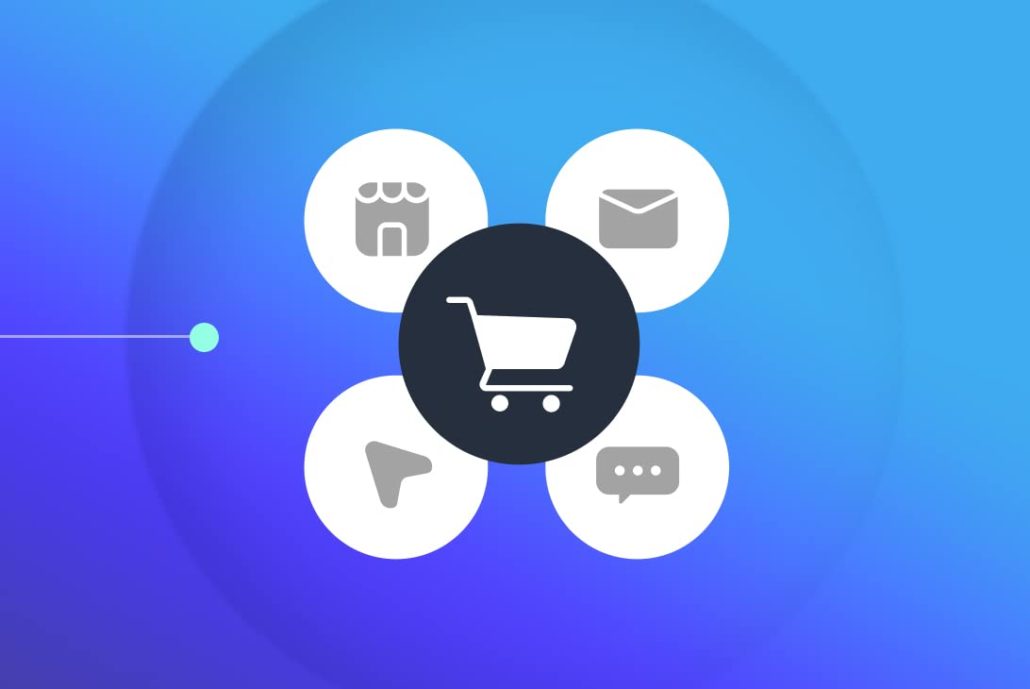What Is a Machine Consumable Product (MCP)?
The Machine Consumable Product (MCP) concept refers to structuring product data in a way that AI agents, bots, and other automated systems can understand, access,...
Published: Oct 29, 2024 Updated: Oct 29, 2024
When wondering how to choose the right PIM (Product Information Management) system, it all begins with research and arranging demos with leading software companies. However, once you set up the demos, you must understand the right questions to ask when buying a PIM.
Here we look at six questions to ask during a PIM demo to help you narrow it down to the final contender.
You’re in the market for a PIM, but does your organization need one?
A PIM is a central platform that companies use to manage and improve information about the product across various channels, especially sales and marketing. It is a hub for your product data which collects, stores, manages, and distributes this information. In doing so, a PIM can also help businesses improve operational inefficiency.
Whether or not your business needs a PIM depends on multiple factors. A PIM is crucial for businesses with a large inventory of products with different attributes and configurations. In this scenario, a PIM platform can help with management.

Such a platform also benefits a business that sells products through multiple channels (e.g., online marketplaces, physical stores, catalogs). In this business, a PIM can ensure consistent product information across all platforms.
There are other benefits of PIM for all kinds of businesses, such as maintaining accurate and up-to-date product data.
If your business has such needs, a PIM system could be a valuable asset business. It can help improve operational efficiency, enhance customer experience, and drive sales.
With this background, we will move on to questions to ask during a product demo.
Because PIM is the process of managing data you need to market and sell products, you want to understand how the software you are considering manages your digital assets. The right PIM software must manage complex product data and digital assets from one central platform. This is one of the most crucial product information management questions to ask during a demo meeting.
In turn, you can work from a single source of truth for text AND image/video across all departments and all marketplace channels.

You want the product information management demo to show you how the software collates product information from your internal and external data sources based on your current use—whether it is an ERP, PLM, or various supplier feeds.
Next on the list of PIM FAQ is critical because every company has its information and media assets they manage. From basics like SKUs, product names, and technical specs to product relationships, categories, and marketing data, you want to know how a PIM system can handle your product expansion.

Be sure to ask for specific types of information relevant to your business and how scalable the software is to meet your changing needs. If you are using multi-channels for eCommerce, then your product data and digital asset management questions should center on how the software can tailor your digital assets to meet the different requirements of new channels. This is an essential benefit that a PIM solution should provide.
The software company should offer consultation and implementation services to help you make a smooth transition that improves productivity. If you jump in without an assessment of your current setup and tech stack, the software can hinder productivity because of an ill-prepared team or poorly conceived system update. Successfully deploying a PIM involves asking questions specific to your business. It also impacts customer experience.

Therefore, before a provider sells you the software, they should offer a PIM platform and technology evaluation to assess your current infrastructure.
This ensures they can improve your current setup and provide the right PIM to align and improve your digital services. As well, you want to ensure your PIM allows you to remain compliant with regulations applying to your industry as you make the switch.
When these important steps are taken, you’ll enjoy a seamless transition to an effective new digital system designed to scale your business.
If your company contends with multiple marketplaces or plans to expand your reach with new channels, you want to make sure the software helps streamline the process of uploading product information while also identifying gaps.
Have them show you how easily their software allows you to set up new sales channels and helps you remain consistent with the different platform requirements.

Does it allow you to set up validations to ensure all product content is accurate and complete?
Does it notify team members when they miss critical information?
All these are important questions to ask during a software demo.
You want your PIM to allow you to drive more demand. Using relevant search terms is the best way to boost your SEO performance. The product information management software demo should explain how you can tap into new opportunities.
Examples include drop shipping or long tailing to improve ranking, increase visibility and boost revenues.
Optimizing your site for search engines helps customers find you, so you need to see how the software allows you to use well-structured product data to improve your SEO rankings.
For search engine optimization you need your PIM to allow you to easily optimize product content.
This ties in with question #2 regarding scalability. Have the company show you how the PIM allows you to expand your product range. You want workflows and reporting tools that allow you to achieve more in less time while keeping an eye on how your team is progressing. You have to remain responsive so you can take advantage of market trends, but also react quickly to unexpected opportunities.
For example, if you sell outerwear, a sudden snowstorm in late spring calls for winter boots and warmer coats.
You might also see demand in unexpected markets and want to quickly go global. A supplier might let you in on a deal that allows you to expand into a new category. All these changes require a responsive PIM process that allows you to get things to market in just a few clicks whether it is new categories or entirely new international markets.

Apart from these six PIM vendors questions, you can also ask about:
Knitting and bundling are essential for businesses that offer product packages or kits. For instance, camera kits with lenses and accessories. For such a business PIM systems can help manage configurations and streamline product creation and marketing.
Operational efficiency is also a concern for several companies. A good PIM system can automate tasks, improve data quality, and centralize data management. On the flip side, it can reduce manual labor and errors.
Finally, for eCommerce businesses, a PIM system can help manage product catalogs, distribute product data to various channels, and create rich product content to enhance online shopping experiences.
These top questions will help you find the best PIM software for your needs. If you want to learn more about how Pimberly allows you to do all these things, click here to book your demo today.


